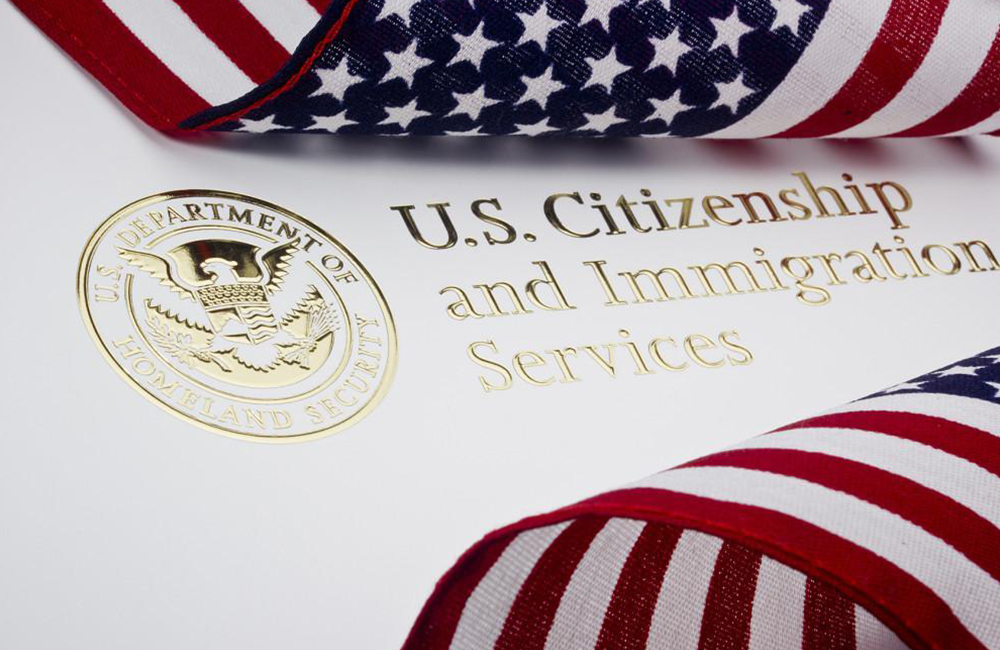Topic Page: Covid-19 and Immigration

One of the first things I learned during my early years in Washington was that if an agency is facing a cut in funds it is easier to handle, and involves fewer layoffs, if it is dealt with early in the fiscal year, rather than later in it. That's just simple math.
Suppose that the agency operates on $1.2 million a year, or about $100,000 a month, and it faces a 10% annual reduction. If this is recognized by the leadership early on, say in the first month of the year, then the monthly reduction is to $90,0000 a month rather than $100,000. But suppose the funding cut was only recognized later in the year, when the whole $120,000 has to be saved in just two months – thus reducing the spending to $40,000 a month. In the second scenario, agency spending is cut sharply and probably a majority of the staff must be furloughed or laid off.
This is exactly what is happening to U.S. Citizenship and Immigration Services (USCIS).
We are now approaching July first, which means that there is only one quarter of the fiscal year remaining. So any savings to be made must take place in just this last 25 percent of the year. With this in mind, USCIS and the administration are asking for $1.2 billion in taxpayer funds to get the agency through the rest of the fiscal year, as its usual source of funding, application fees, has been reduced sharply, partially as a result of the White House's own posture on immigration, generally.
To make things worse, USCIS sought the extra funds after the Congress went on a record spending spree, designed to revive the virus-impacted economy. The $1.2 billion request, had it been made earlier, would have probably been included in what was a trillion-dollar package. Currently the Republicans are showing no signs of wanting a massive additional stimulus package, dimming the prospect for fast action on the USCIS request. I assume that the request for the $1.2 billion will be folded into an omnibus spending bill of some kind, and all or most of it will be voted – but when?
Now eyes glaze over when government figures reach into the billions, so let me focus on a different number – the size of staff cutbacks. USCIS says that it is about to issue furlough notices, effective August 2, involving 75 percent of its staff.
That's three out of every four workers in the agency. What would this look like if, say the Navy were to have such a reduction. It would mean that 14 or 15 of our 19 aircraft carriers would be put into moth balls, drastically cutting our military strength.
Suppose such a cut would be applied to the Post Office, instantly changing the daily mail deliveries to one or two a week.
In short, USCIS is in terrible state financially, to some extent needlessly so.
In addition to the variable regarding timing, two other factors may be playing background roles. In the 2021 budget request (on p. 31 of the DHS Budget-in-Brief) we see that ICE has received a transfers of $112,257,000 from USCIS. Further, USCIS used to secure millions in fees for H-1B applications upfront, and then later refunded them for the applications that did not win the H-1B lottery. Now that huge multi-month, interest-free loan is gone because of a change in the way that USCIS handles its fees.
The matters of timing, of sending money off to ICE, and the lack of the H-1B fee loans are not mentioned by the government, which focuses on the obvious – the fall in application fees because of the drop in applications for various benefits. This is a downward trend despite the agency's upward adjustment of its fee schedule.
The time has come to rethink the wisdom of trying to run USCIS largely on application fees, a policy followed, I think, by no other immigration agency in the world.
One can launch two quite different arguments in this connection:
- To open-doors people: We should not charge aliens, a generally low-income population, such high fees, which should be borne, at least partially, by the public generally.
- To restrictionists: Forcing aliens (and their relatives and employers) to pay fees for benefit applications sets up a terrible dynamic in which the agency might be tempted open the gates to more immigration, just to stay alive.
Will Congress rescue the agency in time to avoid massive USCIS layoffs? Time and 535 individuals on the Hill will tell.
